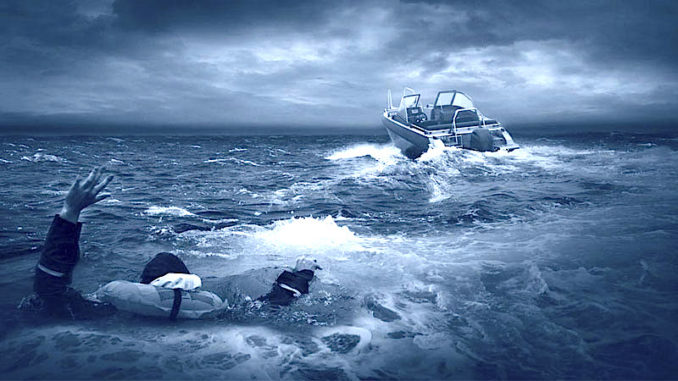
Kill switch law became effective April 1, 2021
We want to remind boaters of a new federal law concerning the use of kill switches, also known as engine cut off switches (ECOS). The law requires that operators wear their kill switch when at planing speed while operating boats less than 26 feet in length.
This is a federal law that was passed by the U.S. Congress as part of Section 8316 of the National Defense Authorization Act of 2021.
Kill switches are typically made up of lanyards that boat operators clip onto their life jacket, around their wrist, or to their clothing. The lanyard has a clip connected to the vessel’s cut-off switch. If the operator is thrown overboard, the clip disconnects, shutting off the engine. Wireless cut-off switches are also available. These allow boat operators to move about the boat while in motion, but kill the engine if a certain distance is exceeded.
Kill switch is not required at idle or when not on plane
The U.S. Coast Guard is enforcing the law nationwide. Local game wardens and other law enforcement agencies also have the authority to enforce the law.
According to the USCG, boaters are not required to use a kill switch or ECOS if:
- The operator is in an enclosed helm
- The boat is off plane and not exceeding hull speed
- During docking maneuvers or while at idle
- The vessel does not have a kill switch AND is not required to have one
- The boat generates less than 115 pounds of static thrust (approximately full throttle of a 3 HP outboard)
- The boat is at least 26 feet in length
Click here to visit the U.S. Coast Guard’s web page explaining more about the new law.
The post “New law requires some boaters to use kill switch” first appeared on CarolinaSportsman.com.


